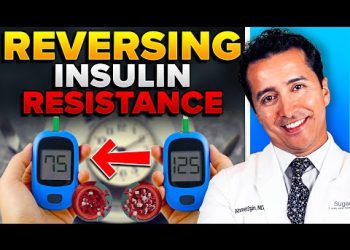Nutritional Considerations After 50
As we age, particularly past the age of 50, it’s essential to be more attentive to our nutrition. Certain nutrients can have varying effects on our bodies at this stage, potentially leading to increased health risks or the necessity for adjustments in our dietary intake.
Exercise Caution with Iron Intake
One of the primary nutrients to be cautious with is iron. The body lacks an efficient mechanism to eliminate excess iron, which can lead to liver damage. Furthermore, high levels of iron can heighten infection risks by providing more “food” for pathogens, especially if the immune system is compromised. Women who are menstruating manage this naturally, but for others, iron sources such as red meat and liver or, more safely, through blood donation might be necessary.
Rethink Calcium Supplements
Excessive calcium intake can result in calcium build-up in the arteries and contribute to kidney issues. Although vitamin D plays a crucial role in calcium absorption, it can also lead to hypercalcemia in high doses. Hence, while focusing on adequate vitamin D intake, one should be mindful of calcium accumulation problems.
Avoid Synthetic Vitamin A
Synthetic vitamin A presents potential risks such as liver damage and osteoporosis, alongside intracranial pressure increases causing headaches. Natural sources like cod liver oil and egg yolks provide safer alternatives for adequate vitamin A intake.
The Necessity of Sodium
Contrary to popular belief, sodium remains vital, especially as we age. It plays a crucial role in maintaining energy levels, underscoring the importance of not overly restricting sodium in the diet.
Incorporate More Vitamin C
Vitamin C, both synthetic and natural, can be beneficial for aging individuals. While synthetic vitamin C can help with conditions like allergies and even cancer support, natural sources like sauerkraut are excellent alternatives.
Niacin for Cholesterol and Energy
Vitamin B3, or niacin, becomes increasingly important as we age. Despite its tendency to cause skin flushing, gradually increasing the dosage can mitigate this reaction. Niacin is crucial for improving HDL cholesterol levels, repairing DNA, and boosting energy.
Manage Calcium with Magnesium
Magnesium plays a significant role in preventing calcium accumulation in cells, thereby supporting heart health and energy levels. It assists in managing blood pressure, easing muscle cramps, improving sleep, and reducing cortisol levels.
The Importance of Vitamin D
Many individuals need higher levels of vitamin D than what they’re currently receiving. While concerns about toxicity exist, it’s worth recalling that sun exposure can yield significantly higher vitamin D levels than most supplement regimens.
Vitamin K1 and K2 Benefits
Vitamin K1 aids in normal blood clotting without increasing clotting risks. A diet rich in dark leafy greens ensures adequate intake. Vitamin K2 is essential for mobilizing calcium, ensuring it remains within bones and promoting mitochondrial health for better energy production.
Understanding and adjusting our nutrient intake after 50 is pivotal for maintaining optimal health and preventing age-related health issues.











